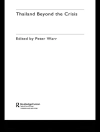Floods, fires, famines, epidemics and disasters of all kinds are on the increase, and as their frequency rises so does the call for greater resilience. But what does that mean? The word is used differently in psychology, ecology, economics and engineering and runs the risk of becoming meaningless jargon. This would be most unfortunate because, if we are to successfully navigate very real and dangerous global trends, it is resilience that needs to be understood and fostered.
Finding Resilience is international in scope and unravels how ecosystems, societies and people cope with disturbance and adversity. An authoritative but plain English account which is based on the experiences of researchers, the fascinating stories from around the world reveal what resilience is, how it works in different kinds of systems, how it is expressed, and how it can be gained and lost.
表中的内容
Acknowledgements
PART I. WHAT’S IT ALL ABOUT?
1. Connections in a changing world
2. Another pathway
PART II. ENCOUNTERING RESILIENCE IN NATURE
3. Living together in ecosystems
4. Ecological choreography
5. Disturbance, change and diversity
PART III. THE NATURE OF RESILIENCE IN SOCIETY
6. Coping with life
7. Living together in society
8. Weathering crises
PART IV. NATURE, SOCIETY AND RESILIENCE
9. Unintended outcomes
10. Growing pains
PART V. A WAY FORWARD
11. Changing cultures
12. A resilience pathway
EPILOGUE: WHAT IT’S ALL ABOUT
Glossary
Endnotes
Index
关于作者
Brian Walker has conducted and led research on resilience in social-ecological systems around the world. He was Senior Lecturer at the University of Rhodesia, Zimbabwe, Professor of Ecology at the University of the Witwatersrand, South Africa, and Chief of Australia’s CSIRO Division of Wildlife and Ecology. He is a past-Chair of the International Resilience Alliance and of the Beijer Institute of Ecological Economics in Stockholm, and is now an Honorary CSIRO Fellow and Honorary Professor at The Australian National University. Brian was the recipient of the prestigious Blue Planet Prize in 2018.












